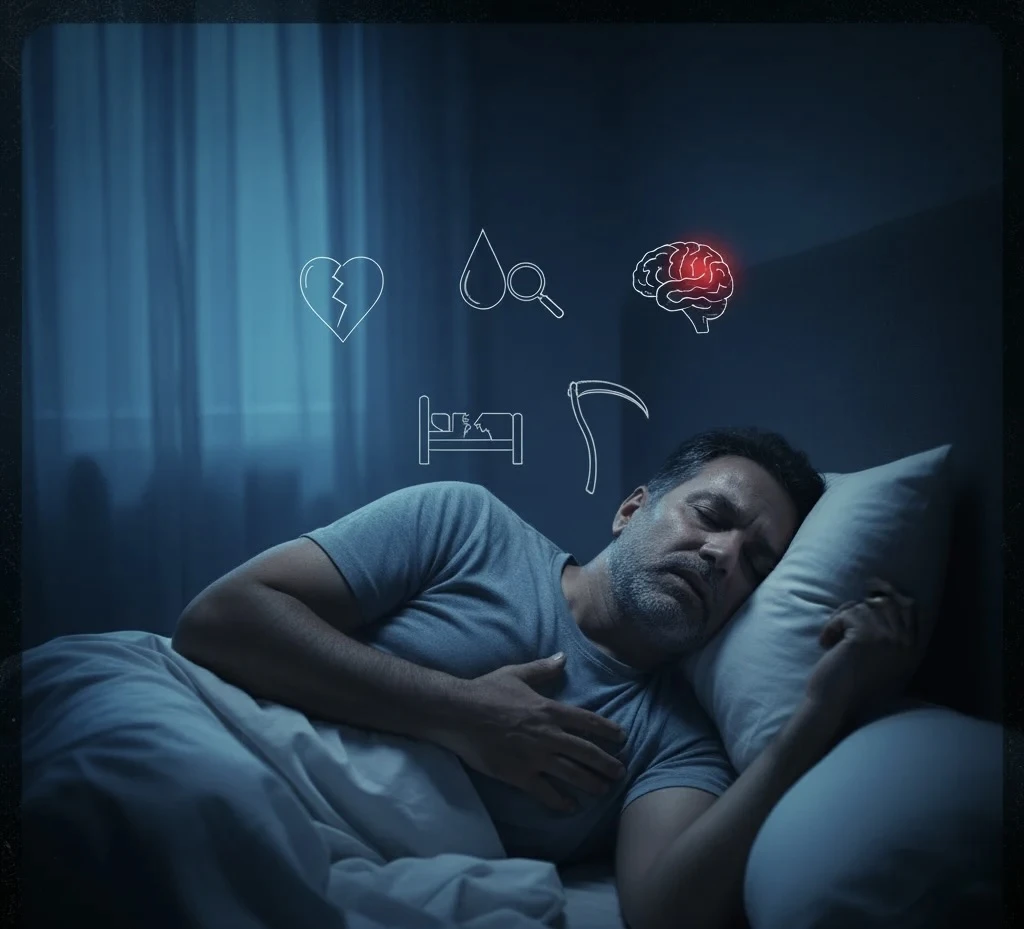

Sleep apnea is often brushed aside as “just snoring” or “being tired,” but it is far more dangerous than most people realize. Left untreated, this silent disorder quietly damages your heart, brain, metabolism, and overall quality of life.
Millions of people live with undiagnosed or untreated sleep apnea — often for years — while the condition silently increases their risk of serious, even life-threatening illnesses.
In this article, we’ll explore the hidden dangers of untreated sleep apnea and why seeking diagnosis through a sleep study test can be life-saving.
Sleep apnea causes repeated pauses in breathing during sleep, leading to drops in blood oxygen levels. Every time this happens, your brain jolts you awake to restart breathing. These constant disruptions prevent you from reaching the deep, restorative stages of sleep your body needs.
Over time, this chronic stress response has a domino effect on nearly every system in your body.
Each breathing pause triggers a surge of stress hormones (like adrenaline), which raises blood pressure and puts extra strain on your heart.
Many people with “resistant hypertension” — high blood pressure that doesn’t respond well to medication — are found to have untreated sleep apnea. Controlling the apnea often improves blood pressure.
Untreated sleep apnea is a major risk factor for cardiovascular disease. Low oxygen levels and constant sleep interruptions damage blood vessels, increase inflammation, and strain the heart.
Studies show that people with untreated sleep apnea are more likely to develop:
Sleep apnea disrupts glucose metabolism and increases insulin resistance, paving the way for type 2 diabetes.
Poor sleep quality also increases cravings for high-sugar and high-carb foods, contributing to weight gain — which further worsens both sleep apnea and diabetes risk.
Sleep deprivation alters hormones that control hunger (ghrelin and leptin). This leads to increased appetite and cravings for unhealthy foods, while fatigue makes exercise harder.
Meanwhile, excess body weight — especially around the neck — narrows the airway and makes sleep apnea more severe. This creates a dangerous cycle that’s hard to break without treatment.
Chronic sleep fragmentation reduces oxygen supply to the brain, affecting memory, focus, and decision-making.
People with untreated sleep apnea are at higher risk for:
Daytime drowsiness and reduced alertness caused by untreated sleep apnea can lead to dangerous accidents at work or while driving.
Drowsy driving is a major cause of road accidents worldwide — and untreated sleep apnea is one of the biggest contributors.
Because it silently harms multiple organs over time, untreated sleep apnea can reduce life expectancy. Research shows that people with severe, untreated sleep apnea have a higher risk of early death from heart disease, stroke, and other chronic illnesses.
The good news is that sleep apnea is treatable. The first step is proper diagnosis through a Level 1 or Level 3 sleep study test, which monitors your breathing, oxygen levels, and sleep stages.
Getting tested early can:
At Healthy Jeena Sikho, we offer sleep study tests at home so you can get diagnosed in the comfort of your own bed.
Sleep apnea is not just about snoring — it’s a serious medical condition with far-reaching consequences if left untreated. The longer it goes unnoticed, the more harm it does.
If you or someone you know shows signs of sleep apnea, don’t wait. Book a sleep study test at home and get the answers you need to protect your health and future.